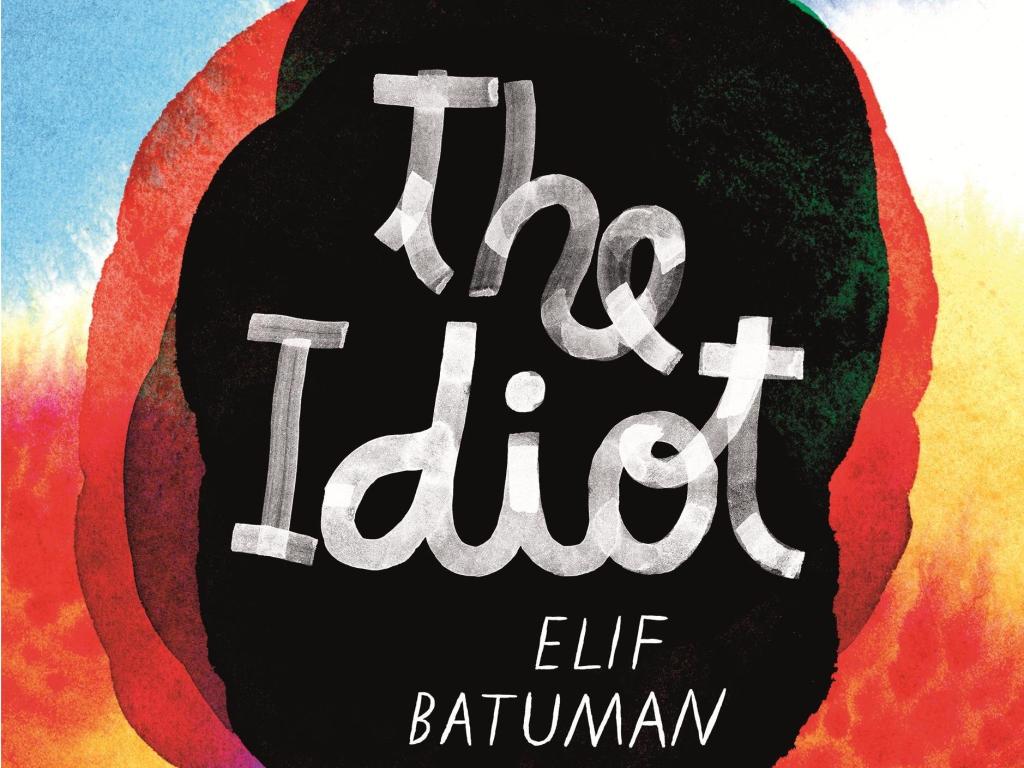Book cover art: The Idiot by Elif Batuman. Image via Penguin Random House Australia.
Selin is an American of Turkish descent and not yet twenty years old. In the two parts of The Idiot she relays first, in diary-like fashion, her experiences during her freshman year at Harvard University in 1995, and then follows that with a story of international travel.
Selin is gifted, energetic and naive – and she wants to be a writer. As such she is initially unsure in what courses to enrol, eventually deciding on linguistics, Russian, and a seminar called ‘Constructed Worlds’.
Selin details her day-by-day experiences at university as if any trivial event were momentous and memorable. And what happens in her Russian class or how Selin reacts when a casual friend remarks that she is a real ‘graphomaniac’ makes for good reading; Batuman’s storytelling is humorous and she writes in an elegant and captivating style. But while every event recounted is interesting in itself, and so well portrayed that you smile, laugh or cry along with Selin, The Idiot does lack a certain narrative drive.
Some of Selin’s isolated reflections at least partially compensate for this absence of momentum. Like Batuman, Selin is interested in language. She speculates on the implications of the inferential tense, for example, which is present in her native Turkish and in the languages of Estonia and Tibet. The inferential tense, she concludes, allows the speaker to assume the wonder and ignorance of children. It is a fascinating observation. Naive Selin may be, but uneducated she is not. But she does expect words to mean what they say. Home on mid-term vacation Selin and her mother watch The Sound Of Music on television. ‘Because of commercials, it took more than four hours’, notes Selin. ‘I was interested when the nuns sang about solving a problem like Maria. It seemed that “Maria” was actually a problem that they had – that it was a code word for something.’
When Selin starts a relationship with Ivan, an American of Hungarian descent, their words are mainly communicated through an exciting new technology then in its infancy – email. Their relationship evolves slowly at first but eventually becomes something more personal. It has its ups and downs and many misunderstandings but while it adds interest to the story, it still fails to contribute any great pace to the narrative.
In part two of the book, Selin spends a few days in Paris and Budapest before finding herself in a Hungarian village teaching English to children. Again, the reader is treated to many charming anecdotes and some engaging insights into local lifestyles and eating habits. Selin takes her work seriously but still manages to find a little time to spend with Ivan, whose family live in Budapest.
Because both parts of the book have some of the flavour of a diary it is perhaps inappropriate to wish for a stronger story-line. This is a coming of age novel, after all, and read with that in mind, it is likely to most appeal to those with nostalgic memories of their early university experiences. Batuman quotes Proust regarding the characteristics of ‘the ridiculous age’ – Selin’s age. But Selin is a wonderful character; it is only in the Proustian sense that she could be seen as the eponymous idiot.
Rating: 3 stars out of 5
The Idiot by Elif Batuman
Trade Paperback
9781910702703
March 20, 2017
Jonathan Cape





